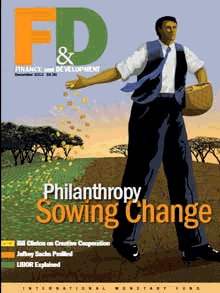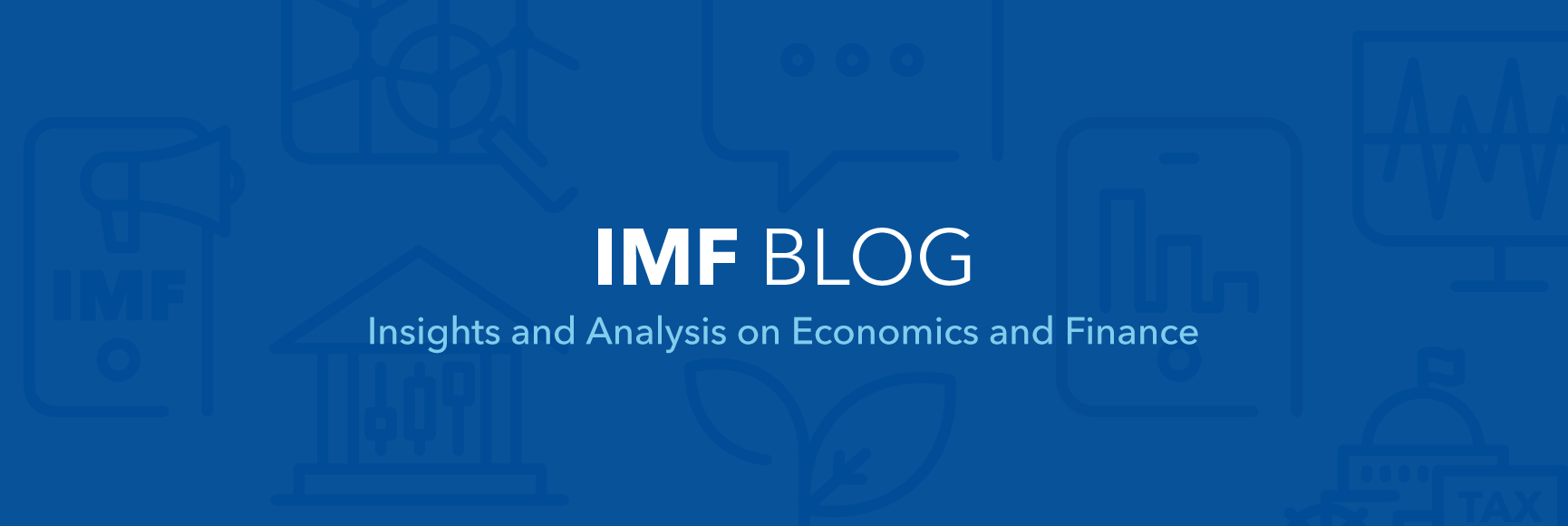Whether combating malaria through the provision of mosquito nets or building schools and providing basic sanitation, philanthropy is helping transform the developing world. Rich donors are devoting fortunes—many of them earned through computer software, entertainment, and venture capitalism—to defeating poverty and improving lives, supplementing and in some cases surpassing official aid channels.
From billionaires Bill and Melinda Gates and Warren Buffett to Aliko Dangote and George Soros, the titans of capitalism are backing good causes with their cash. By financing new vaccines, championing maternal health, supporting learning, building libraries, or buying up Amazon rain forest to protect the environment, philanthropists are backing innovations and new approaches that are changing lives and building dreams.
The new issue of Finance & Development magazine looks at the world of targeted giving and social entrepreneurship.
Pushing from the front
[caption id="attachment_5733" align="alignright" width="198"] F&D magazine on philanthropy[/caption]
F&D magazine on philanthropy[/caption]
“Philanthropy’s role is to get things started,” says Microsoft co-founder Bill Gates, who is the world’s most generous giver. “We used foundation funds to set up a system to make market forces work in favor of the poor.” He says that catalytic philanthropy can make a big difference. “Good ideas need evangelists. Forgotten communities need advocates.”
And it's not just for the rich. Former U.S. President Bill Clinton argues that we can all do something."Our world is more interdependent than ever, and our effectiveness as global citizens will be judged by what we do to create an environment that allows everybody to do better and lift themselves up," he writes. Networks of creative cooperation between government, business, and civil society can get things done better to solve the world’s most pressing problems.
Humans, he argues, are among the "great cooperators"--along with ants, bees, and termites. "We humans enjoy the blessings and bear the burdens of consciousness and conscience. We are capable of self-destruction, but we have an amazing capacity to overcome adversity and seize opportunities when we choose cooperation over conflict."
Replacing the MDGs
One of the most ambitious global cooperative efforts has been the Millennium Development Goals, the set of eight U.N. development targets which range from halving extreme poverty to halting the spread of HIV/AIDS and providing universal primary education--all by the target date of 2015. They have formed a blueprint agreed to by all the world’s countries and all the world’s leading development institutions, and have galvanized unprecedented efforts to meet the needs of the world’s poorest.
Already development economists are thinking "what comes next?" "Any successor framework," writes the IMF's Nemat Shafik, "must reflect global aspirations and arise from a rich consultative process. I believe that the new framework must embrace a broader understanding of development—one that is relevant for all countries, rich as well as poor."
One of the champions of the MDGs is economist Jeffrey Sachs, who is profiled by Prakash Loungani. Sachs helped campaign for debt relief for developing economies. The effort was successful. In 1999, the Group of Eight countries (G7 plus Russia) committed to $100 billion in debt cancellation by the end of 2000. “When this man gets going, he’s more like a Harlem preacher than a Boston bookworm,” wrote an admiring Bono about Sachs.
As Clinton argues, "The good news is we can all do something, big or small, to advance opportunity."






